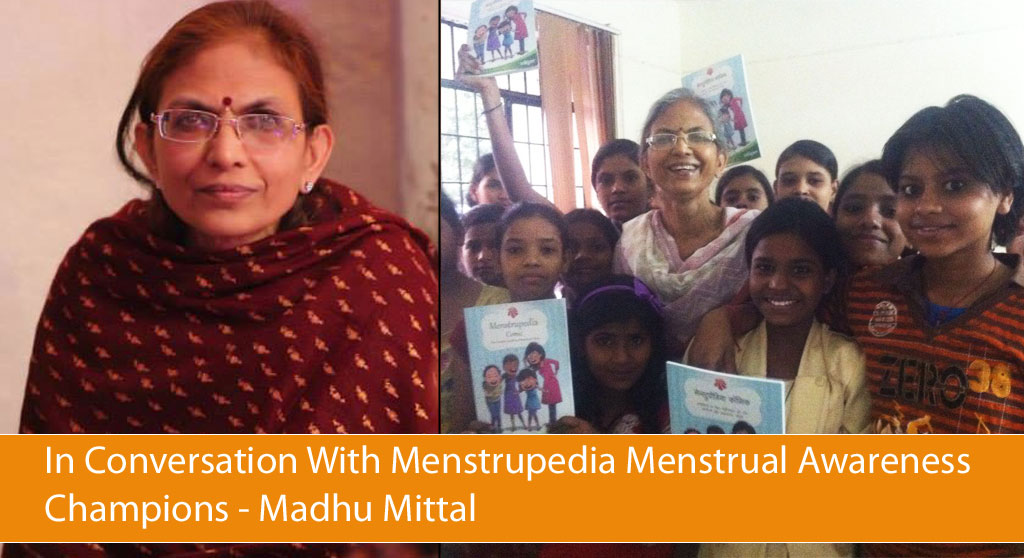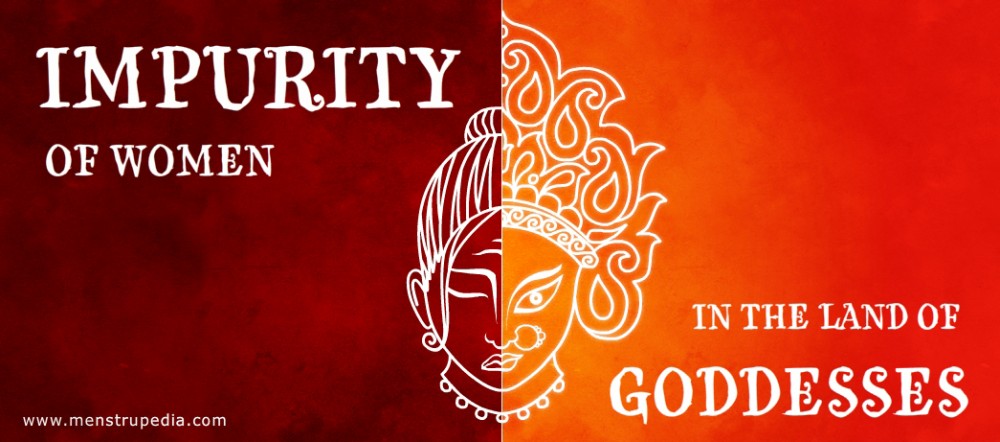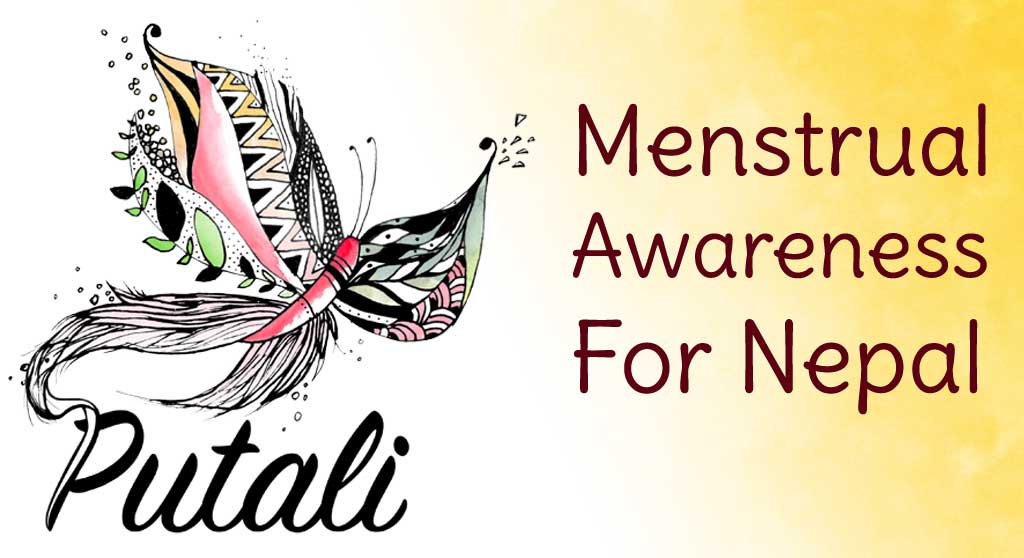Disclaimer: Views expressed here are of the author alone and do not necessarily represent that of the Organization
“I bleed every month but I do not die – how am I not magic.” – Nayyirah Waheed
Personal account!
The announcement of the nationwide lockdown phase 1.0 by the Prime Minister found me checking upon my stock of sanitary napkins. So, this was my essential good. When I looked out during this pandemic I could see the motor of the world did stop; The Atlas did shrug, and it reminded me of Ayn Rand’s dystopian novel The Atlas Shrugged.
Stigma 1.0 – Sanitary products are not essential goods.
The lockdown was extended. One fine lockdown 2.0 day while scrolling through Instagram aimlessly, I read a post. Here it goes, “I can’t believe we still have to get our periods during this insanity.” I scrolled through the comments and from a range of one to ten, they were filled with sarcastic humor, personal period stories, women currently menstruating, some anticipating, and others celebrating. This simple factual post made me think how different it is for women all around the world. How we dread the discomfort and pain! Yet, how we worry about delayed periods or no periods at all. Also this 2.0 phase I did the restocking and said ‘not an essential’ to the black polythene bag the shopkeeper wanted to wrap the sanitary pads packet in.
Stigma 2.0 – Sanitary products need to be concealed.
Yes, as I entered the 3.0 phase of the lockdown with the rest of the nation, a few things did change for me as an individual. I observed how my list of ‘essential goods’ had changed taking on a whole new definition. Although I do not consider myself a spendthrift, still I saw scope for shopping consciously. Sanitary waste is an issue that has been troubling me since some years. Although with emerging products like menstrual cups, washable napkins by Eco Femme and biodegradable options, I still feel that sanitary napkins need to be made eco-friendlier and more practical.

I don’t shy away from the mess of the whole menstrual cycle. Rather than avoiding it, I make it creative for myself. All this, thanks to apps like Period Tracker and empowering stories about menstruation from cultures around the world. Pain management has been my main challenge during periods during the most part of my menstruating life. More than religious dos and dont’s, it was asking for a ‘menstrual leave’ at work or managing a work day on the most painful days and that has bothered me the most. All these years of trying to find tools to manage the pain, the practice of yoga or more precisely ‘menstrual yoga’ during this pandemic had bought in some relief. With no dearth of yoga sessions on YouTube, I took the leap and continued practicing yoga asanas that helped ease the pain I underwent during menstruation.
Stigma 3.0 – Periods in the workplace.
It was during the phase 4.0 of lockdown that a friend shared a fundraiser link which read: ‘Let care spread faster than Corona – Survival Kit for Girls (Sanitary Pads, Masks and Soap).’ The proceeds for the cause were to go to underprivileged girls in the city. As I thought about it, it seemed absurd to me, this phase of ‘Periods in the Pandemic.’ When the whole world is fighting a battle with an unseen enemy, a virus so advanced and deadly, there is still the stigma around menstruation to deal with it.
Stigma 4.0 – The very natural process of menstruation.
Coming to the topic specifically!
There have always been misconceptions and unawareness around menstruation before or during the pandemic. A shortage of sanitary products faced globally due to the disruption in supply chains and constrained production once again bought to surface the menstruation issues of the country and the stigmatization surrounding it. In order to understand the challenges that emerged due to the COVID-19 pandemic, it is important to understand the diversity of groups affected by it.
RURAL: INDIA IS A DIVERSE NATION WITH 65% OF THE TOTAL POPULATION RESIDING IN RURAL AREAS.
Challenges:
- Shortage of sanitary products due to restricted mobility of (wo)men and material
- Lack of private water and sanitation facilities
- Lack of hygiene – affects health
- Effects on mental health
- Discrimination due to menstrual taboos and stigmas
Possible solutions:
- Ease of access of sanitary products through frontline workers, NGOs, self-help groups, school authorities, and public health centers
- Provide information on how to make home-made pads and how to use them safely
- Installation of safe toilets and dustbins for disposal
- Awareness on menstrual sanitation practices and how it can effect women’s health
- Educating against stigmas
URBAN SLUMS: CENSUS SAYS 1 IN 6 PEOPLE IN INDIA LIVE IN SLUMS.
Challenges:
- Access to toilets as community sanitation facilities are used in slums
- Lack of hygiene – affects health
- Effects on mental health
Possible solutions:
- Ease access of sanitary products through frontline workers, NGO’s, self-help groups, community volunteers and public health centers,
- Installation of safe toilets and dustbins for disposal
- Awareness of menstrual sanitation practices and how it can affect women’s health
MIGRANTS: THE TOTAL NUMBER OF INTERNAL MIGRANTS IN INDIA AS PER THE 2011 CENSUS IS 45.36 CRORE (37% OF THE COUNTRY’S POPULATION).
Challenges:
- Many women migrants walked hundreds of kilometers during the lockdown with no access to sanitary products and with little means to dispose
- The women migrants who took shelter in relief camps also faced challenges as testing kits and medicines are essential items and not menstrual products or sanitation
- Lack of hygiene – affects health
- Effects on mental health
Possible solutions:
- Ease of access of sanitary products through frontline workers, NGO’s, and community volunteers working to help migrants
- Sanitary pads must be provided free of cost
- Provide Information on how to make home-made pads and how to use them safely
- Sanitary pads and underwear must be provided at relief camps
- Safe toilets for women within the relief camps
- Dustbins for menstrual waste disposal
- Awareness on menstrual sanitation practices and how it can affect women’s health
LOW-INCOME HOUSEHOLDS: THE DAILY-WAGE WORKER, PEOPLE WORKING IN UNORGANIZED SECTORS.
Challenges: Lack of ability to afford sanitary products due to loss of employment which directly affects health (physical and mental)
Possible solutions:
- Ease access of sanitary products through frontline workers, NGO’s, self-help groups, and public health centers
- Sanitary pads must be provided free of cost
- Information on how to make home-made pads and how to use them safely
- Awareness on menstrual sanitation practices and how it can effect women’s health
WOMEN CORONA WARRIORS WORKING DAY IN DAY OUT – HEALTHCARE WORKERS IN QUARANTINE CENTERS AND ISOLATION FACILITIES, SANITATION WORKERS, POLICE WOMEN
Challenges:
- Menstruating in PPE kits
- Lack of sanitation facilities during work hours or common toilets
- Long work hours under intense work pressure effects health (physical and mental)
- Difficulty in changing pads frequently due to work location or work conditions
- Prone to health problems like bruises on thighs, urine infection
Possible solutions:
- Adequate facilities in terms of menstrual products (pads, tampons, cups)
- Adequate resources to manage menstrual health,
- Gender-sensitive management
- Education for all on managing menstruation in the workplace
Education for all and awareness is the key to break stereotypes. I believe the reasons behind stigmatizing menstruation are the way it is thought upon and looked down at. People need to be educated, understand, accept and share awareness. A large section of our society does not accept this process as natural. Most people are too shy to talk about it or are disgusted to do so. The worst part is that percentage of society that makes thoughtless remarks about menstruation and consider periods as a subject to mock. With the unlocking of the nation, I hope the minds and thoughts of people stigmatizing menstruation get unlocked too.
I ruled out the urban menstruating population as one directly affected by COVID-19. I hope you can see why.
Disclaimer: Views expressed here are of the author alone and do not necessarily represent that of the Organization
Author: Nidhi Rawat

Nidhi belongs to the foothills of the Himalayas, Dehradun (Uttarakhand, India). She likes to befriend books, spread watercolors into flowers on paper, gets cold feet while trekking the mountains and swimming in pools, and is crazy about researching anything that catches her attention. She also loves thukpa and momos any day, ideating her book, Google lensing flowers, and has a fetish for organizing stuff.
Edited by: Divya Rosaline







